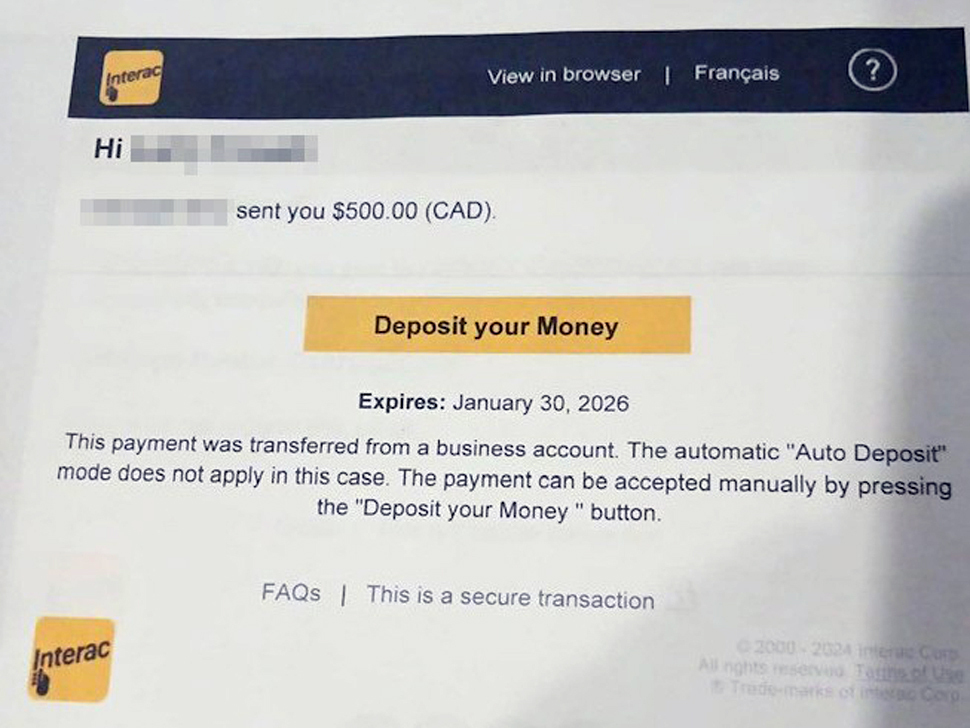Manitoba RCMP is warning the public about interac e-transfer scams that are becoming more prevalent. In these instances, the victim receives an email which appears to be from someone trying to send them an interac e-transfer. At first glance it appears legitimate and when the victim clicks on the link and enters in their banking credentials, the scammers are able to steal the banking login information. This gives the scammers access to the account which allows them to withdraw large sums of money. Scammers are becoming more and more sophisticated, so extra caution is needed before you accept an e-transfer.



This is not sophisticated, greedy people click links for free money then put their banking credentials into a page without looking at the address bar. The URL is always a red flag but “they’re trying to send me money!”
It’s even in the article, no one is going to try to send you money. These scams rely on greed.
Shaming scam victims has been shown to make people less likely to seek help after being scammed. Your comment only serves to help scammers.
My dad was expecting an etransfer from a friend. He got a text for the right amount. He was on his phone and the URL was mostly hidden. It was the end of the day, he was tired, he let his guard down. Took us months to deal with the fallout.
The world isn’t so black and white.
Nothing against your dad I’m dealing with a similar situation right now as well, but there are several active steps to being scammed this way. I have also clicked suspicious links but then spent the next half hour trying to figure out if it’s legit before moving forward.
<rant>
Banks and credit card corps should be legally required to provide education to card holders AND restrict online access if the card holder can not demonstrate that they understood the information. It is not unreasonable for people to check a URL and recognize a fake financial login page after they have been shown how.
But the web has been treated like a toy, there is no education about it’s safe use in schools and businesses would very much prefer that you and I know as little as possible about how it works. Lack of education is the underlying issue, your dad, like most people, probably doesn’t look at the address bar or check SSL certs because that kind if thing is “tech stuff.” But the web has been in everyone’s pocket for almost 20 years, no one can say that it’s too complicated or not important to learn how to be safe.
</rant>